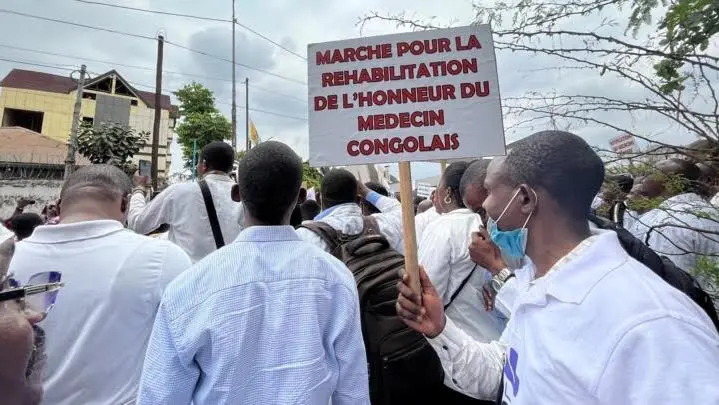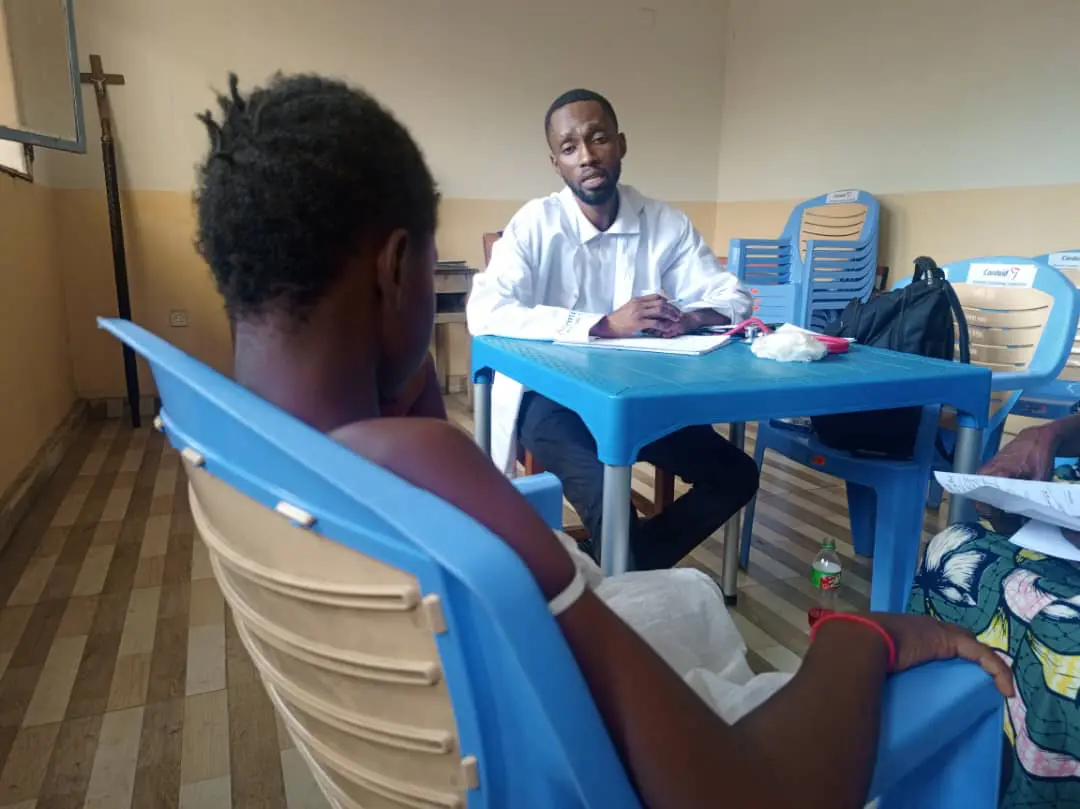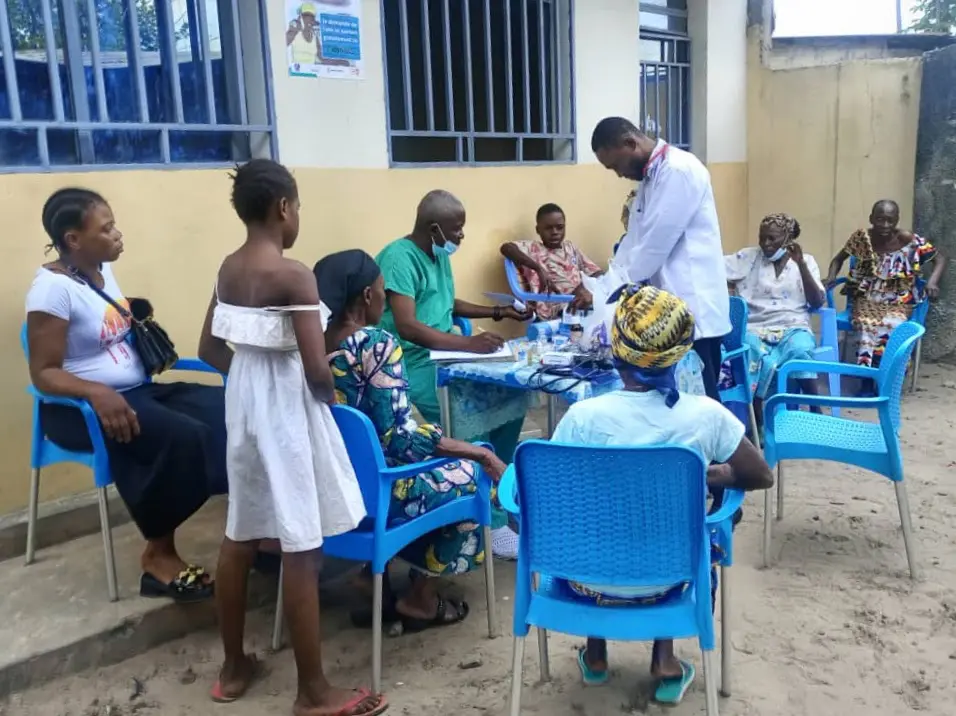Increasing violence against health workers in DRC
Since Oct. 20, 188,000 people have been displaced by fighting between the M23 rebel group and the Congolese army in the DR Congo (DRC). The violence is having a major impact on health workers and healthcare delivery in the country. Healthcare personnel are trying to make themselves heard for better working conditions.
Care provision at risk in DRC
In 2021, there were 127 incidents of violence or obstruction against health personnel in the DRC. This is a sharp increase from the 81 incidents reported in 2020. These included stealing medical equipment and arresting or kidnapping health personnel, in some cases resulting in physical injury or even death. Nearly 90% of the incidents took place in the northeastern and eastern parts of the country, near the border with neighboring Uganda.
The violence is having a severe impact on health care delivery in the DRC. In Ituri province, for example, several health centers had to close their doors and evacuate their staff to the capital of the province. This left thousands of residents without access to health care. In Djugu, rebels took an evacuated hospital and set it on fire. As a result, new medical equipment worth more than a million U.S. dollars was lost. The rebels were eventually driven out, but the hospital’s capacity remains limited by the large loss of equipment. In June 2021, another hospital, this time in Boga, was completely destroyed. This left 80,000 people without access to care overnight.
Pregnant women and young children are the biggest victims of limited access to health care in the DRC. The mortality rate of children under the age of five in the DRC is one of the highest in the world. Maternal mortality in the country also remains very high. On top of that, the DRC was also hit by a new measles outbreak in 2021. Several factors hampered national vaccination programs, including an inadequately equipped health service and the inability of vaccination teams to reach some communities because of persistent insecurity and violence. Young children still do not receive all their childhood vaccinations, mainly in the north and east of the country. It is feared that diseases such as polio and diphtheria will thus regain free rein, leading to more child deaths.


Strike for better working conditions
Health personnel in the DRC are not only victims of violence, but they also work in poor conditions in general. On Sept. 21 of this year, doctors and other medical personnel took to the streets in Kinshasa to demand better working conditions. Doctors in public hospitals have been on strike for months. They accuse the government of not fulfilling its promises, such as on increasing salaries, easing workloads and guaranteeing proper pensions. The majority of doctors join the strike, but they assure minimal services.
After months of striking, the doctors of the Syndicat National des Médecins (SYNAMED) and the Syndicat Libre des Médecins (SYLMED) decided that the strike was not producing enough results. Therefore, they took the initiative for a peaceful demonstration on Wednesday, Sept. 21. This would allow them to express their dissatisfaction in another way and encourage the government to improve working conditions in the sector. As the doctors moved from the Avenue des Huileries to the Boulevard, a confrontation arose with Kinshasa police. The latter stopped and halted the demonstration. However, peaceful protests were permitted and the organizers had obtained all the required permits for the demonstration. The doctors, determined to stand firm, resisted the ban and continued their march. In response, the police reacted very violently. Some demonstrators were beaten, kicked, abused and injured. Others were arrested and subsequently released.
Solidarity campaign in DRC with striking healthcare personnel
The indignation of the doctors is getting bigger in front of the manifestations of violence of the police. They want to continue the strike through the “hospitals without doctors” movement. Even though the strike has significant effects on the quality of care in public hospitals. In normal times, access to decent health care is usually compromised for 90% of the population. It is therefore very important that the demands of the striking doctors be met.
Together with the unions involved in the strike, Etoile du Sud and Si Jeunesse Savait, our two Congolese partners, launched the online solidarity campaign “Mosalayamongasanténabiso” (“the work of health workers is our health” in Lingala). With the campaign, they raised awareness about the challenges facing health workers in the DR Congo and increased public support for the health workers’ strikes. Whether the campaign will be successful in the long run remains to be seen, but the organizations did succeed in eliciting a response from the DRC’s health minister. The latter claimed on Twitter that he will work on a solution. Health personnel continue to press for continued employment in good conditions in the public health sector to better guarantee the Congolese right to health.


